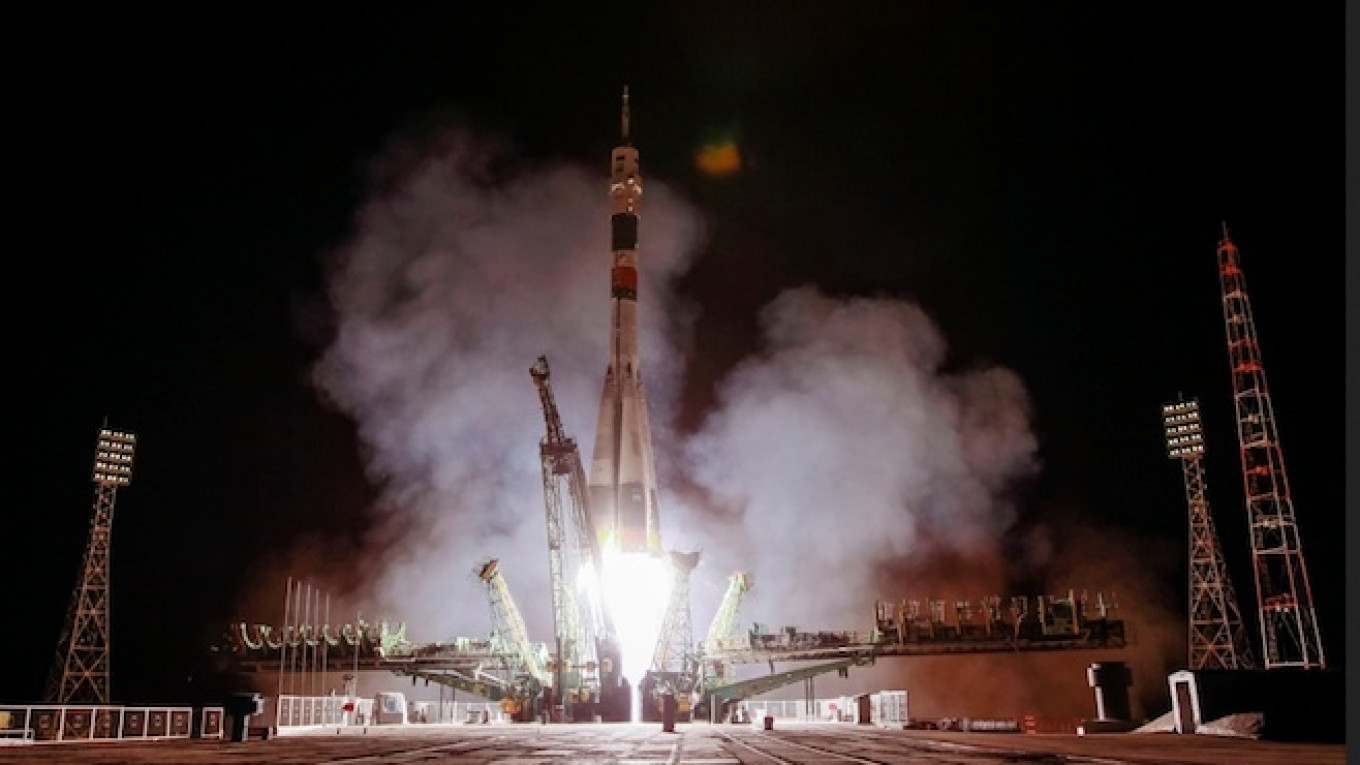A veteran Russian cosmonaut and a pair of rookie astronauts from the U.S. and Germany have blasted off from the Baikonur Cosmodrome in Kazakhstanfor a six-month mission aboard the International Space Station.
The crew's Russian Soyuz rocket lifted off Thursday at 01:57 a.m. local time (07:57 p.m. GMT) and headed into orbit, a live broadcast on NASA Television showed.
Perched on top of the rocket was a Russian Soyuz capsule holding cosmonaut Maxim Surayev, a retired Russian Air Force colonel; NASA astronaut and U.S. Navy pilot Reid Wiseman; and German astronaut and geophysicist Alexander Gerst.
"Adrenaline is rising but feel relaxed," Gerst, 38, posted on Twitter as he and his crewmates rode a bus out to the launch pad.
Less than six hours after liftoff, Gerst and his crewmates reached the station, a $100 billion research laboratory, as it flew about 418 kilometers above the Pacific Ocean west of Peru.
The Soyuz slipped into a berthing port on the station's Rassvet module at 07:44 a.m. (01:44 a.m. GMT).
The station, a project of 15 nations, is overseen by the U.S. and Russia.
Tensions between the two countries have been strained following Russia's annexation of the Crimea peninsula and economic sanctions imposed by the U.S. as a punishment. But until recently, the space partnership was largely exempt from the political rancor and the sanctions' financial impacts.
That ended earlier this month when Russian officials said they would not support a U.S. proposal to keep the station operating beyond 2020. Russia also imposed its own ban on selling Russian rocket motors for U.S. military launches, a more immediate concern since one of two primary rockets currently flying U.S. military missions use Russian-made engines.
At a prelaunch press conference on Tuesday, the new space station crew was asked if the escalating tensions were having any impact on their mission.
In response, Surayev, Reid and Gerst slapped their arms around each other and hugged.
It is business as usual aboard the space station, currently staffed by NASA astronaut Steven Swanson and two Russian cosmonauts, Swanson said during an inflight interview broadcast Tuesday on NASA Television on Tuesday.
"We don't talk about it much, honestly," Swanson said. "It does not affect our working relationship. We get along very well. There are no issues at all up here."
A Message from The Moscow Times:
Dear readers,
We are facing unprecedented challenges. Russia's Prosecutor General's Office has designated The Moscow Times as an "undesirable" organization, criminalizing our work and putting our staff at risk of prosecution. This follows our earlier unjust labeling as a "foreign agent."
These actions are direct attempts to silence independent journalism in Russia. The authorities claim our work "discredits the decisions of the Russian leadership." We see things differently: we strive to provide accurate, unbiased reporting on Russia.
We, the journalists of The Moscow Times, refuse to be silenced. But to continue our work, we need your help.
Your support, no matter how small, makes a world of difference. If you can, please support us monthly starting from just $2. It's quick to set up, and every contribution makes a significant impact.
By supporting The Moscow Times, you're defending open, independent journalism in the face of repression. Thank you for standing with us.
Remind me later.






